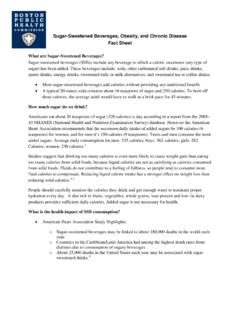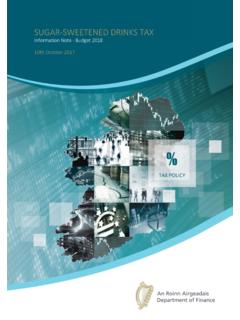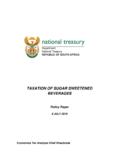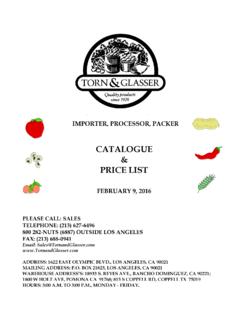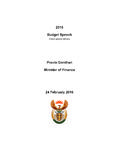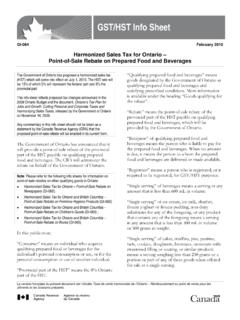Transcription of Information note about intake of sugars recommended in the ...
1 1 Information note about intake of sugars recommended in the WHO guideline for adults and childrenWHO| SummaryivWHO/NMH/ world health organization , 2015 All rights reserved. Publications of the world health organization are available on the WHO website ( ) or can be purchased from WHO Press, world health organization , 20 Avenue Appia, 1211 Geneva 27, Switzerland (tel.: +41 22 791 3264; fax: +41 22 791 4857; e-mail: Requests for permission to reproduce or translate WHO publications whether for sale or for non-commercial distribution should be addressed to WHO Press through the WHO website ( ).)
2 The designations employed and the presentation of the material in this publication do not imply the expression of any opinion whatsoever on the part of the world health organization concerning the legal status of any country, territory, city or area or of its authorities, or concerning the delimitation of its frontiers or boundaries. Dotted and dashed lines on maps represent approximate border lines for which there may not yet be full mention of specific companies or of certain manufacturers products does not imply that they are endorsed or recommended by the world health organization in preference to others of a similar nature that are not mentioned.
3 Errors and omissions excepted, the names of proprietary products are distinguished by initial capital reasonable precautions have been taken by the world health organization to verify the Information contained in this publication. However, the published material is being distributed without warranty of any kind, either expressed or implied. The responsibility for the interpretation and use of the material lies with the reader. In no event shall the world health organization be liable for damages arising from its use. Design and layout: Alberto MarchPrinted by the WHO Document Production Services, Geneva, Switzerland1 The world health organization s new Guideline: sugars intake for adults and children recommends reduced intake of free sugars throughout the life course.
4 In both adults and children, the intake of free sugars should be reduced to less than 10% of total energy intake . A further reduction to below 5% of total energy intake would provide additional health sugars versus intrinsic sugarsRecommendations in the guideline focus on documented health effects associated with the intake of free sugars . These include monosaccharides and disaccharides added to foods by the manufacturer, cook or consumer, and sugars naturally present in honey, syrups, fruit juices and fruit juice sugars are different from intrinsic sugars found in whole fresh fruits and vegetables.
5 As no reported evidence links the consumption of intrinsic sugars to adverse health effects, recommendations in the guideline do not apply to the consumption of intrinsic sugars present in whole fresh fruits and recommendationsThe recommendations to reduce the intake of free sugars and to do so throughout the life course are based on analysis of the latest scientific evidence. This evidence shows, first, that adults who consume less sugars have lower body weight and, second, that increasing the amount of sugars in the diet is associated with a comparable weight increase.
6 In addition, research shows that children with the highest intakes of sugar-sweetened drinks are more likely to be overweight or obese than children with a low intake of sugar-sweetened recommendation is further supported by evidence showing higher rates of dental caries when the intake of free sugars is above 10% of total energy intake compared with an intake of free sugars below 10% of total energy on the quality of supporting evidence, these recommendations are ranked by WHO as strong : they can be adopted as policy in most situations. Countries can act on these recommendations by developing food-based dietary guidelines, taking into consideration locally available food and dietary customs.
7 Other policy options include food and nutrition labelling, consumer education, regulation of marketing of food and non-alcoholic beverages that are high in free sugars , and fiscal policies targeting foods that are high in free sugars . Individuals can implement these recommendations by changes in their food reduction: a conditional recommendationGiven the nature of existing studies, the recommendation of reducing intake of free sugars to below 5% of total energy is presented as conditional in the WHO system for issuing evidence-based epidemiological studies have been undertaken in populations with a low sugars intake .
8 Only three national population-wide studies allow a comparison of dental caries with sugars intakes of less than 5% of total energy intake versus sugars intakes of more than 5% of total energy intake , but less than 10% of total energy intake . These population-based ecological studies were conducted during a period when sugars availability dropped dramatically from 15 kg per person per year before the Second world War to a low of kg per person per year in 1946. This natural experiment , which demonstrated a reduction in dental caries, provides the basis for the recommendation that reducing the intake of free sugars below 5% of total energy intake would provide additional health benefits in the form of reduced dental treatment of dental diseases absorbs from 5% to 10% of health budgets in wealthy countries.
9 Dental caries goes largely untreated in lower income countries, where the cost would exceed all financial resources available for the health care of issues conditional recommendations even when the quality of evidence may not be strong on the issues related to public health importance. A conditional recommendation is one where the desirable effects of adhering to the recommendation probably outweigh the undesirable effects but these trade-offs could not be clarified; therefore, stakeholder dialogue and consultations are needed before the recommendation is implemented as revision of the guidelineAn update of the guideline is planned for 2020.
10 Updating of recommendations would benefit from research in the following areas: How the intake of free sugars affects metabolism Longer-term studies showing how changes in free sugars intake affecthealth Thresholds above which the consumption of free sugars increasesweight gain The effectiveness of behavioural changes in reducing the intake of freesugars Cohort studies to assess the risk of dental caries at different levels ofsugar of Nutrition for health and DevelopmentWorld health OrganizationAvenue Appia 20, CH-1211 Geneva 27, SwitzerlandFax: +41 22 791 4156 Email.










